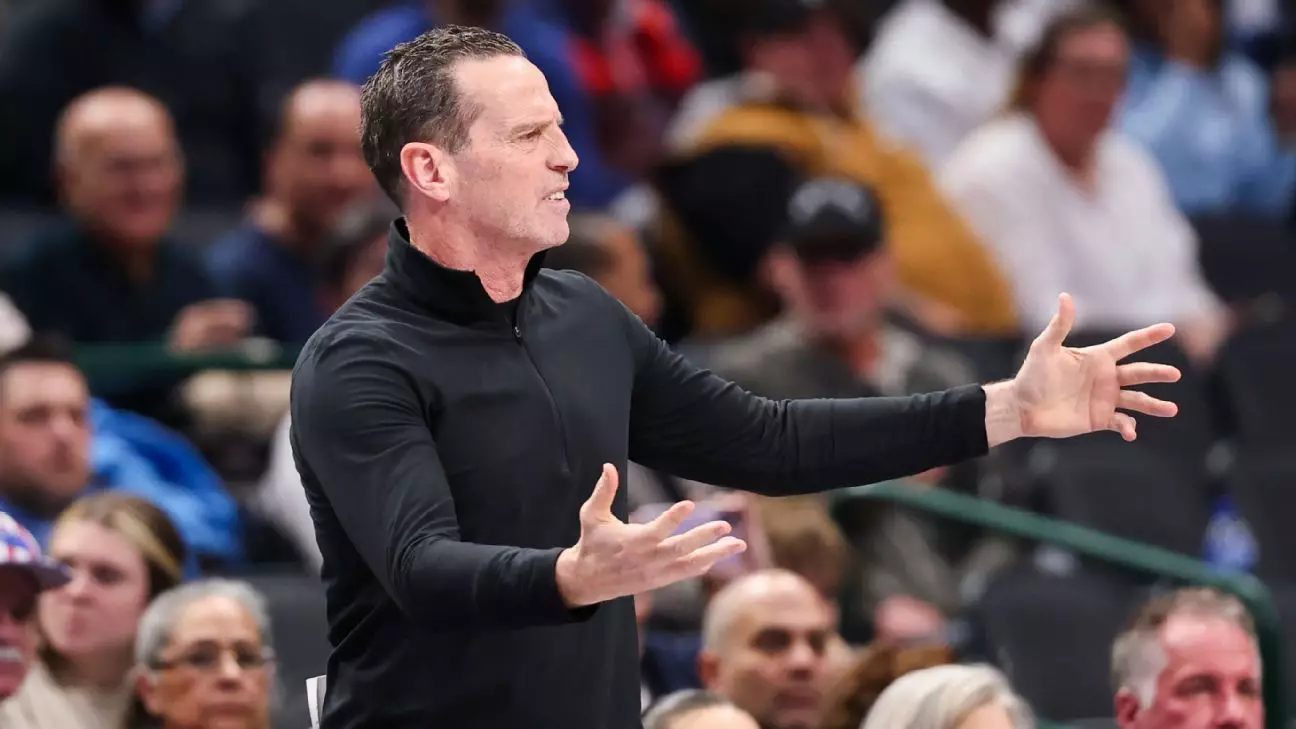In a thrilling encounter that showcased the unpredictability of the NBA, the Cleveland Cavaliers faced off against the Indiana Pacers in a pivotal Game 2 of their Eastern Conference semifinals series. The match culminated in a nail-biting finish with Indiana edging out Cleveland 120-119, thanks to Tyrese Haliburton’s last-second three-pointer. Yet, the game’s denouement has stirred a pot of controversy with the league’s acknowledgment of officiating errors that could have altered the outcome. But amidst all this, Cavaliers’ coach Kenny Atkinson displayed a level of sportsmanship that is as admirable as it is rare in such high-stakes scenarios.
A Coach’s Dilemma: Blame Game or Learning Experience?
Atkinson’s response to the officiating blunders—specifically, the missed lane violations and a defensive 3-second call during the critical final moments—was refreshingly pragmatic. Rather than fixating on the referees’ decisions, he opted to explore the bigger picture, dissecting the factors that contributed to his team’s inability to secure the win. The Cavaliers squandered a commanding 20-point lead, a remarkable choke that suggests deeper issues than a few bad calls. The coach’s focus on coaching and player decisions alongside officiating decisions speaks volumes about his leadership philosophy. In sports, where every play can be pivotal, a successful coach must often perform damage control, facilitating an environment where both players and coaching strategies can learn and adapt.
The Weight of Mistakes: A Lesson in Reflection
The NBA’s “Last Two Minute Report” shed light on multiple missed infractions that could have drastically altered the game’s trajectory. Haliburton’s three-pointer came on the heels of a missed call when he committed a lane violation just before making the game-winning shot. Given that missed opportunities were met with missed calls from the referees, it opens up a larger dialogue about accountability in the heat of competition. How often do athletes and coaches delegate blame onto officials instead of recognizing that mistakes occur on all sides? Atkinson’s refusal to scapegoat the referees resonates as a high road taken by a coach willing to internalize responsibility.
Moreover, the discourse surrounding officiating isn’t just about blaming one party; it’s about a collective approach to improving. In Atkinson’s words, it’s clear: everyone, including the referees, made misjudgments. This revelation may not soothe the sting of defeat, yet it presents an opportunity for the Cavaliers to reflect on what needs to change moving forward. Whether it’s strategizing how to maintain leads or understanding the dynamics of officiating in pressure situations, such realizations are crucial for growth.
Despite Controversy: A Competitive Spirit Shines Bright
Interestingly, Pacers’ head coach Rick Carlisle echoed a contrasting sentiment, suggesting their own misgivings amid the officiating disputes. He pointed out that his team had been called for significantly more fouls than the Cavaliers, reinforcing that the game itself is inherently fraught with complexities. This mutual acknowledgment of the challenges posed by officiating adds another layer to the narrative, illustrating that, in high-stakes competition, no one party is above making errors. Despite the controversy, both coaches indicated they would not seek leniency from officials, reinforcing the idea that professionalism prevails over pleading for favoritism.
The Road Ahead: Adapting to Challenges
As the series now shifts to Indianapolis for Game 3, both teams must regroup and reassess their tactics. The Cavs must learn to protect leads and hold their composure against adversity. Their recent loss presents a wealth of material for which to analyze, adapt, and ultimately improve their gameplay. At the same time, the Pacers will undoubtedly aim to sustain their momentum and exploit the weaknesses presented by their opponents, blending resilience with strategic ingenuity.
In professional sports, tensions are often electrically charged, and moments like these can pivot entire seasons. The heartbreak of losing a close game for the Cavaliers is not merely a footnote; it serves as a potent reminder of the vital importance of adaptability, strategy, and above all, resilience. This is a lesson that both teams will carry as they forge ahead in this riveting playoff series, transcending mere numbers to become teachers, learners, and competitors in the relentless pursuit of excellence.


Leave a Reply